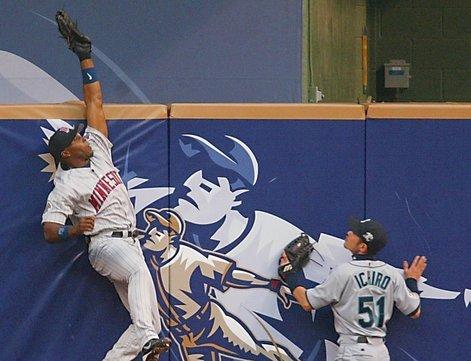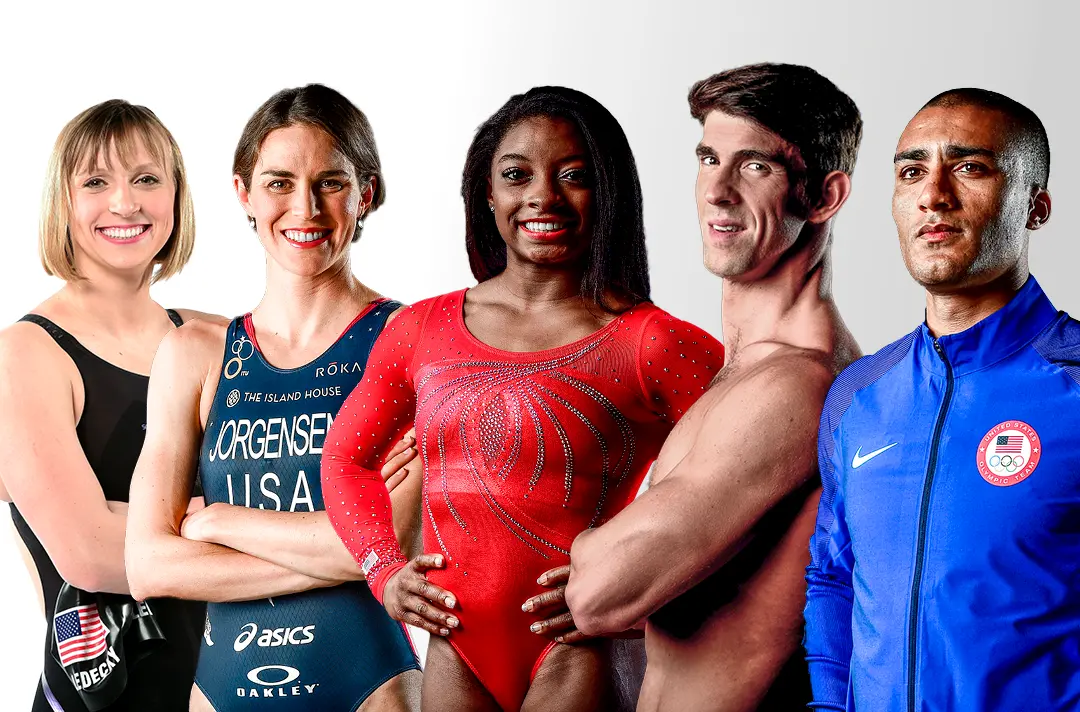Baseball’s mid-summer classic, the All-Star Game, first debuted way back in 1933. Back in those days there was no interleague play, so the prospect of American League players on the same field as the best National League players was a treat for fans. Thus the game has been the most popular All-Star event among the four major North American sports: baseball, basketball, football, and hockey.
With all that history, the game has provided many classic moments. Here are the 10 best over the past 80 years:
10. July 6, 1933: Babe Ruth hits inaugural All-Star Game home run—When the All-Star Game finally came around, it was only fitting that the then 38-year-old home run king would hit the first one in All-Star Game history. And so he did with a third-inning blast off St. Louis player Bill Hanahan. Ruth would start the next year’s mid-summer classic as well before calling it quits in 1935 after playing 28 games that season for the Boston Braves.
9. July 9, 2002: Torii Hunter robs Bonds of home run—Though the 2002 game is mainly remembered for its anti-climactic tie ending, it started off with one of the best defensive plays in All-Star Game history. Twins centerfielder Torii Hunter went over the wall to bring back a certain home run off the bat of reigning MVP Barry Bonds (fresh off his record-breaking 73-home run season) in the bottom of the first. Ironically, had he not made the run-saving catch perhaps the game would have ended in regulation and there would have been no controversial rule change that gave the winning side the World Series home-field advantage.
8. July 6, 1983: Fred Lynn hits only grand slam in All-Star Game history—Lynn, hitting third for the AL, promptly dispatched a third-inning, bases-loaded Atlee Hammaker offering over the right field fence for a game-breaking grand slam. The AL scored seven times that inning to go up 9–1 before winning a 13–3 laugher. Though four different AL hitters enjoyed multi-hit games, Lynn—who still has the only grand slam in All-Star Game history—was named MVP.
7. July 10, 1934: Carl Hubbell strikes out five future Hall-of-Famers in a row—They didn’t award All-Star Game MVPs until 1962, but had they done it in 1934 Hubbell would have been the front-runner for sure. A Hall-of-Famer himself, Hubbell started the game by allowing the first two hitters on base before getting into gear. The two-time MVP pitcher then mowed down the AL lineup’s ridiculously imposing 3-4-5 hitters of Babe Ruth, Lou Gehrig, and Jimmie Foxx via strikeout to end the inning. He then started the second frame by whiffing Al Simmons and Joe Cronin—that’s five straight strikeouts of Hall-of-Fame batters.
6. July 9, 1946: Ted Williams hits pair of home runs, including one off the “eephus” pitch—There was no All-Star Game the year before, due to World War II and Williams himself had missed each of the previous three seasons serving his country. He didn’t miss a beat though when he came back and in the 1946 game, in his home town of Boston, Williams hit a pair of home runs, including an eighth-inning blast off of Rip Sewell—the highlight of the game. Sewell was famous for his “eephus” ball, which was a slow, high-arching pitch that fooled Williams into strike one. But one pitch was all it took to figure it out and the “Splendid Splinter” then deposited the next “eephus” offering into the right field bullpen.
5. July 12, 1955: Stan Musial hits 12th-inning walk-off home run—Musial’s dramatic blast had capped off a five-run come-from-behind win by the NL in the second extra-inning affair in All-Star Game history. The AL had scored four runs in the first inning—including three off a Mickey Mantle home run. It was a 5–0 deficit entering the bottom of the seventh before the senior circuit finally got on board with a pair of runs. After scoring three more in the eighth to tie it, the game was deadlocked at five until Musial’s blast in the 12th.
4. July 10, 2001: Ripken is moved to shortstop in his final All-Star game—In a sign of respect for one of the game’s all-time greats, shortstop Alex Rodriguez arranged for third baseman, and former shortstop, Cal Ripken to move back to his former position just as the players took the field in the first. Ripken, who had announced that this would be his last season before the season began, was the feel-good story of the game. His third-inning home run off of Chan Ho Park put the American League on the board and led to his being named MVP in his final All-Star Game appearance.
3. July 13, 1993: John Kruk sees his life (and a Randy Johnson fastball) pass before his eyes—By 1993, the 6-foot-10-inch imposing fireballer Randy Johnson had finally harnessed his fastball and it was devastating, to say the least. Though not always obvious to the fans just how intimidating his pitches were to the hitters, Phillies first baseman John Kruk gave them an idea in his only at-bat against the Mariners’ ace. After nearly having his head taken off by an errant Johnson fastball to start off the at-bat, Kruk playfully acted like his heart was palpitating, while taking a number of steps before stepping back into the box. Kruk then cautiously took a couple of more swings to strike out and headed back to the dugout, just glad to still be alive.
2. July 13, 1971: Reggie Jackson hits rooftop blast—The AL won the 1971 contest 6–4 by scoring all six runs on a trio of two-run home runs. But it was Reggie Jackson’s two-run shot that was all the buzz in this one. Jackson, who would go on to hit more than 500 home runs in his illustrious career, hit an absolute moon shot in the third inning that struck a transformer some 100 feet off the ground and roughly 380 feet from home plate. The blast, which actually turned off the lights, then landed on the rooftop at Tiger Stadium. It was estimated that the ball would have traveled some 530 feet had the transformer not been in the way.
1. July 14, 1970: Pete Rose knocks out Ray Fosse—In probably the most controversial play in All-Star Game history Pete Rose, also known as “Charlie Hustle,” bowled over young catcher (then 23) Ray Fosse at the plate (just before the ball arrived) in the bottom of the 12th to then knock the ball out of Fosse’s hands and score the winning run for the NL. Fosse though suffered a fractured shoulder that was blamed for his shortened career, while Rose was roundly criticized for his rough play in an exhibition.





